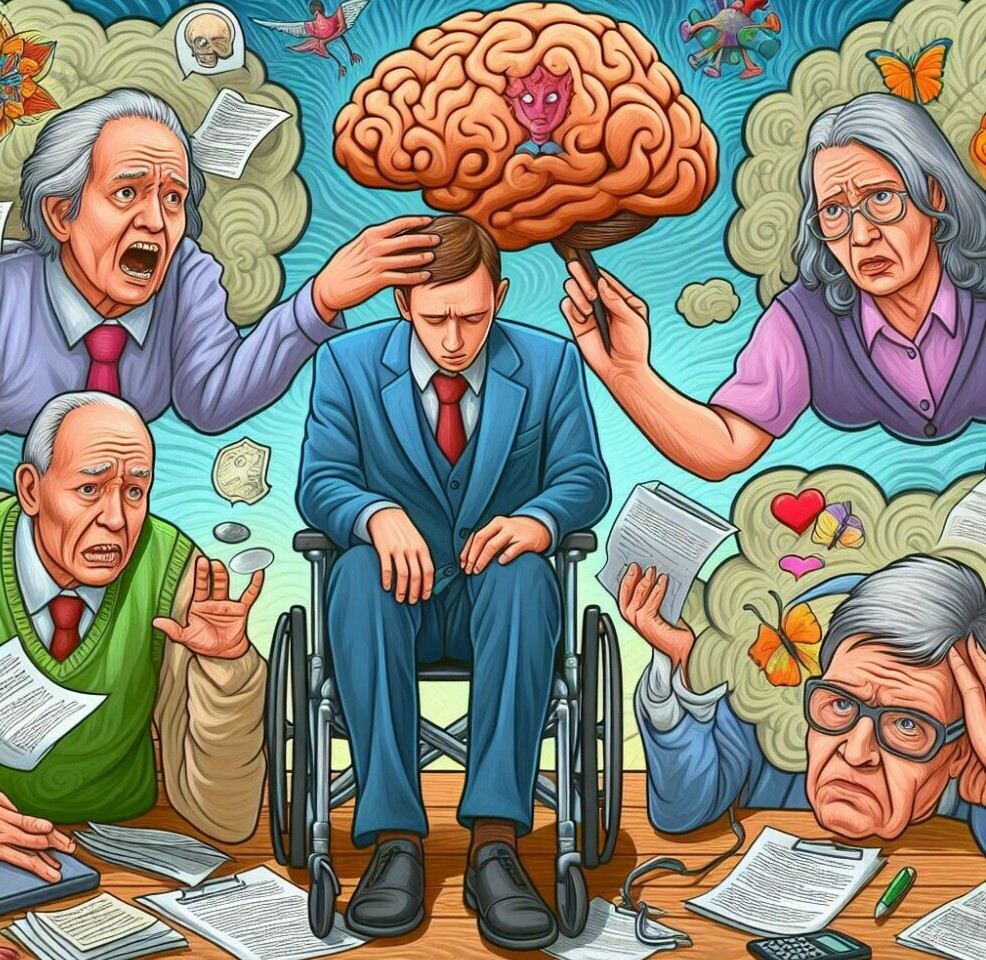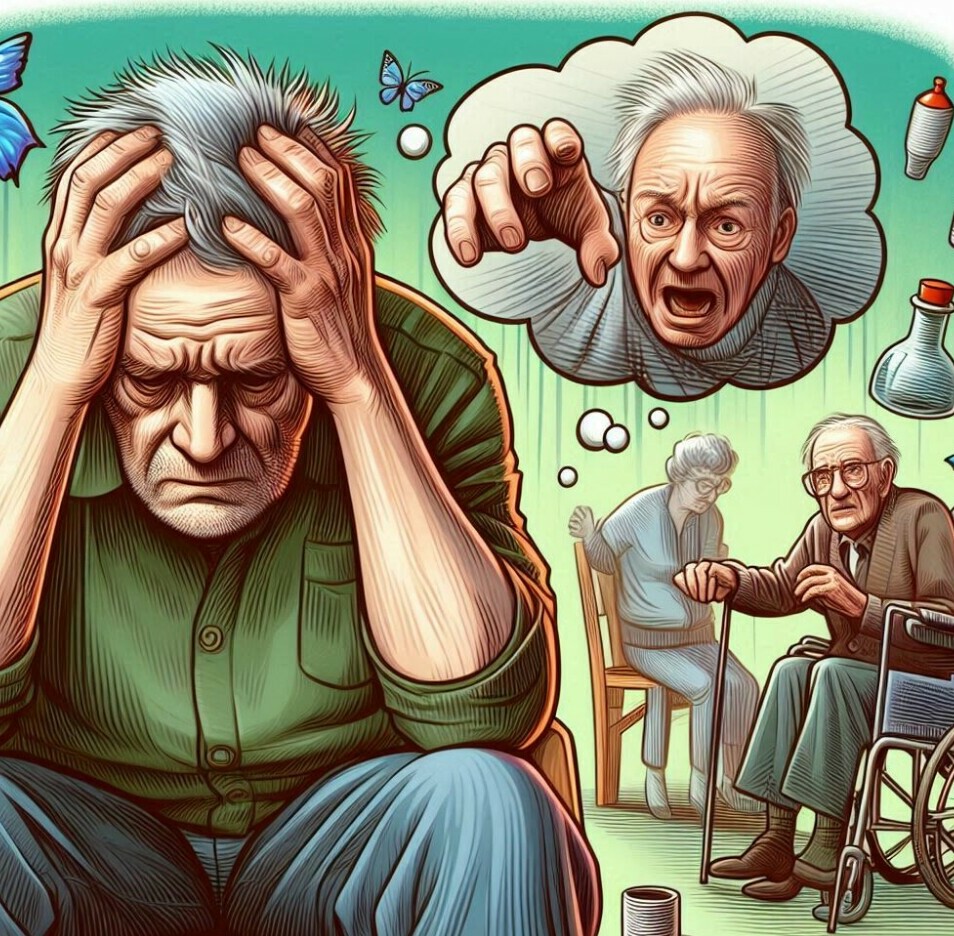
As the global population ages, the prevalence of dementia is rising, making it increasingly important to understand and implement effective coping strategies.
Let’s shed some light on what exactly dementia is and why it’s much more than just a memory issue. Dementia is an umbrella term that encompasses a range of neurological disorders, each of which affects the brain differently. These disruptions to cognitive functions can impact memory, language skills, problem-solving abilities, and even personalities.
There’s a lot of opportunity in understanding the nuances of dementia since it isn’t a one-size-fits-all condition. Alzheimer’s disease may be the most recognized form, but other types include vascular dementia, dementia with Lewy bodies, and frontotemporal dementia, each with its own set of challenges and symptoms.
This isn’t just about clearing up common misconceptions; it’s also about recognizing that dementia can alter every aspect of a person’s life. A prevalent myth is that dementia is a natural part of aging – but it’s not. It’s a series of diseases that require proper diagnosis and management.
Anxiety can be a significant part of the dementia experience, too. As cognitive functions decline, a person may become more anxious due to their changing abilities and understanding of the world around them. This relationship between anxiety and cognitive health is crucial, as managing one can often help maintain the other.
You might not think of anxiety as a common companion to dementia, but it often walks hand in hand with this condition. Seeing a loved one or experiencing oneself the symptoms of dementia can certainly heighten stress levels. You’re going to find out about the intricate ways dementia and anxiety interact, and why recognizing these cues is crucial.
First, let’s talk about spotting anxiety in individuals with dementia. This isn’t just about the obvious signs of nervousness. Anxiety in dementia can manifest as restlessness, sleep disturbances, or even increased confusion. It’s essential to monitor these symptoms as they can not only affect the person’s quality of life but also complicate their care.
The question is, how do you manage anxiety that’s intertwined with dementia? There’s no one-size-fits-all answer, but several psychological strategies can be beneficial. Techniques such as guided imagery, deep breathing, and reassuring routines are a few examples. You’ll notice that a calm and consistent environment often helps diminish anxiety levels.
Most importantly, the value of a solid support system can’t be stressed enough. Support from family, friends, and healthcare providers forms a safety net that ensures the individual with dementia isn’t fighting their battles alone. This collective effort not only provides emotional cushioning but also practical assistance in managing daily challenges.
Developing Coping Mechanisms for Panic Attacks in Dementia

If you’re caring for someone with dementia, you might have noticed moments of intense fear or discomfort that seem to emerge out of nowhere. These can be signs of a panic attack, and they’re as distressing for them as they are for you.
Understanding what triggers panic attacks is the first step to managing them. Changes in environment, routine, or even certain memories can set off a panic attack in individuals with dementia.
When these intense moments strike, it’s crucial to have coping strategies in place. Calming techniques such as deep breathing exercises, gentle reassurance in a soft tone, and creating a distraction can all be useful. Additionally, maintaining a regular routine can help minimize triggers.
It’s not just about managing the moment; it’s also about prevention. Regular physical activity, engaging in meaningful activities, and ensuring a comfortable, familiar environment can all help reduce the frequency and intensity of panic attacks.
Knowing when to seek professional help is vital. A therapist or counselor specializing in dementia care can offer support and tailor strategies to suit the individual’s needs. If panic attacks are frequent or severe, it’s important to consult with a healthcare professional.
While creating a safe and accommodating environment is essential, it’s equally important to ensure you, as a caregiver, have the support you need. This transition leads to our next focus—empowering caregivers with the necessary tools and resources.
Empowering Caregivers: Tools and Resources for Dealing with Dementia
Caring for someone with dementia is a profoundly emotional journey that can be fraught with challenges and moments of deep connection. It requires not only patience and resilience but also the right set of tools and knowledge to navigate the complexities of the condition effectively.
Firstly, I want to stress the importance of using practical support systems. Caregivers should familiarize themselves with the various tools and resources available, such as memory aids, home safety modifications, and community respite services, which can make day-to-day care more manageable and safe.
I also believe it’s absolutely essential for caregivers to preserve their mental and emotional well-being. This may include setting aside time for self-care, engaging in stress-relief activities, or seeking professional support to deal with the naturally arising stressors of caregiving.
Building a support network is another crucial element. Engaging with online forums, joining local support groups, or even organizing a casual meetup with fellow caregivers can provide a platform for sharing experiences, offering advice, and receiving emotional backing from people who truly understand the day-to-day realities of caring for someone with dementia.
You’re going to find out about not just a wealth of information and advice, but a real sense of community. It’s about knowing that you’re not alone on this journey; there’s a network of friends and professionals out there, ready to lend a hand or an ear when you need it.
Remember, while your role is instrumental in the life of your loved one with dementia, your health and happiness matter just as much. Choose something that resonates with you when it comes to self-care and support systems and remember that it’s okay to ask for help when you need it.
I hope that you find solace in these words and that they guide you in seeking out the best possible care—for both your loved one and yourself.
By fostering a compassionate and informed approach, caregivers can make a profound difference in the lives of those affected by dementia. Through continued research and community support, we can hope to improve the quality of life for everyone impacted by this condition, providing a more hopeful and supportive future for all.
Kindly leave your comments and experiences below.
Simplified. Turn YOUR Passion, Hobby or Interest into YOUR Success Story! Join Wealthy Affiliate today: https://www.
**Here’s a little transparency: Our website contains affiliate links. We may receive a small commission if you click and make a purchase. Don’t worry, as there’s no extra cost to you. It’s a simple way to support our mission of bringing you quality content.

The blog post on coping with dementia is incredibly insightful and empathetic towards those affected by this challenging condition. Addressing anxiety and stress as integral components of dementia sheds light on often overlooked aspects of the disease. It’s commendable how the post delves into developing coping mechanisms for panic attacks specifically related to dementia, offering practical strategies that caregivers and patients alike can implement. The inclusion of tools and resources for dealing with dementia is particularly valuable, providing readers with actionable steps and support networks to navigate this journey effectively. Overall, this post serves as a compassionate guide for anyone touched by dementia, offering hope and practical solutions in a sensitive manner.
Hello,
I appreciate your kind words and insightful comment on the article.
It’s very important to address anxiety and stress as key components of dementia. I’m glad you found the focus on developing coping and practical strategies helpful.
Providing tools and resources for people with dementia is a crucial aspect, and it delights me that these were valuable to you.
Your feedback and comments mean a lot.
Thank you, as we all join hands in compassion and support for those faced with this challenging situation.
Best wishes,
Makinde
This blog post on coping with dementia is incredibly insightful and compassionate. Your emphasis on managing anxiety and stress highlights crucial yet often overlooked aspects of the condition. The practical strategies for dealing with panic attacks are particularly valuable for both caregivers and patients. I appreciate the inclusion of tools and resources that offer tangible support and actionable steps. This article serves as a wonderful guide for anyone affected by dementia, providing hope and practical solutions in a sensitive manner. Thank you for sharing this essential information!
Hi Samuel,
I appreciate your contributions to the article.
I’m glad the practical strategies for managing panic attacks resonate with you while recognizing that addressing and managing anxiety and stress are equally crucial.
Likewise, your thoughts on the resources and tools provided are valuable and commendable.
Thank you for your kind words; it really mean a lot and encourage us to continue sharing helpful awareness and information for those affected buy dementia.
Thanks.
All the best,
– Makinde